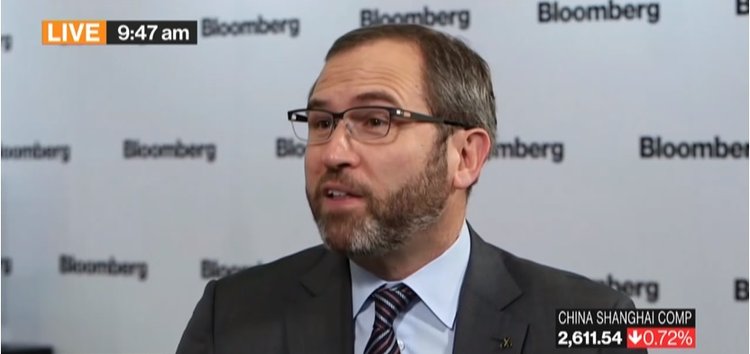Brad Garlinghouse, the CEO of Ripple, believes that more and more companies will turn to blockchain startup products, rather than SWIFT, because of the advantages of Ripple in speed and manufacturability.
“The technologies that banks use today that SWIFT developed decades ago really hasn’t evolved or kept up with the market. SWIFT said not that long ago they didn’t see blockchain as a solution to correspondent banking. We’ve got well over 100 of their customers saying they disagree,” he said.
SWIFT (Society for Worldwide Interbank Financial Telecommunications) is the largest global network that provides services for interbank transfers and settlements. Already for several decades, banks, businessmen and private individuals have resorted to its services in matters of cross-border money transfers.
In this case, the system has its own number of disadvantages. SWIFT was repeatedly the subject to hacker attacks and lost large sums of money. System also has a centralized structure. This creates opportunities for pressure and manipulation. Several banks are involved in payment processing at once — the payer, the correspondent of the paying bank, the correspondent of the beneficiary bank, the beneficiary. Because of this, transfers can take very long. And up to 60% of payments in varying degrees require human intervention.
Ripple is a direct competitor to SWIFT in the cross-border transfer market. The project is working to increase the speed and reduce the fees for cross-border transfers using distributed ledger technology. Garlinghouse believes that the service that his company provides on a daily basis, in fact, is superior to SWIFT. “What we’re doing and executing on a day-by-day basis is, in fact, taking over SWIFT,” he said.
The blockchain eliminates the need for centralized management through public ledgers, and also allows for financial transactions without the services of intermediaries, such as banks and financial institutions. The technology is also not perfect, but potentially the speed of processing transactions in a DLT can be 2-3 times higher than that of SWIFT. Also, using blockchain significantly reduces the fees for transfers.
As an example, Garlinghouse spoke about a money transfer company that recently switched to Ripple technology and now managed to reduce the cost of transactions for its customers from $20 to $2. According to him, the number of people wishing to use the company's service in the shortest possible time has increased by 800%. Garlinghouse pointed out that this is a dynamic that SWIFT cannot support.
“SWIFT said not that long ago they didn’t see blockchain as a solution to correspondent banking. We’ve got well over 100 of their customers saying they disagree,” said Garlinghouse.
At the same time, SWIFT is also working to improve the system. In August, the company launched a new international payment standard — GPI (Global Payments Innovation), designed to compete with Ripple. This is a standard for international payments, which increases the speed and transparency of payments.
In essence, this is a technical solution embedded in the current SWIFT scheme. New features for the participants of the system appear due to the detailing in the GPI of information about the payment. However, introducing the new standard requires significant refinement of the existing IT infrastructure of banks and, as a result, serious financial injections.
Then SWIFT announced that it does not plan to use Ripple technology. A company spokesman said that the update of standards is not related to the fintech project. And the purpose of the update is to introduce tracking links into all payments, with the help of which banks will be able to track their GPI payments in real time.
Also at the beginning of the year, SWIFT published the final results from its DLT proof of concept for Nostro reconciliation. According to the results of the experiment, the researchers came to a conclusion that the blockchain technology can be effectively used to coordinate international Nostro accounts in real time. At the same time, the participants of SWIFT said that it was too early to apply new solutions across the entire interbank network.
Subscribe to our Telegram channel to stay up to date on the latest crypto and blockchain news.



